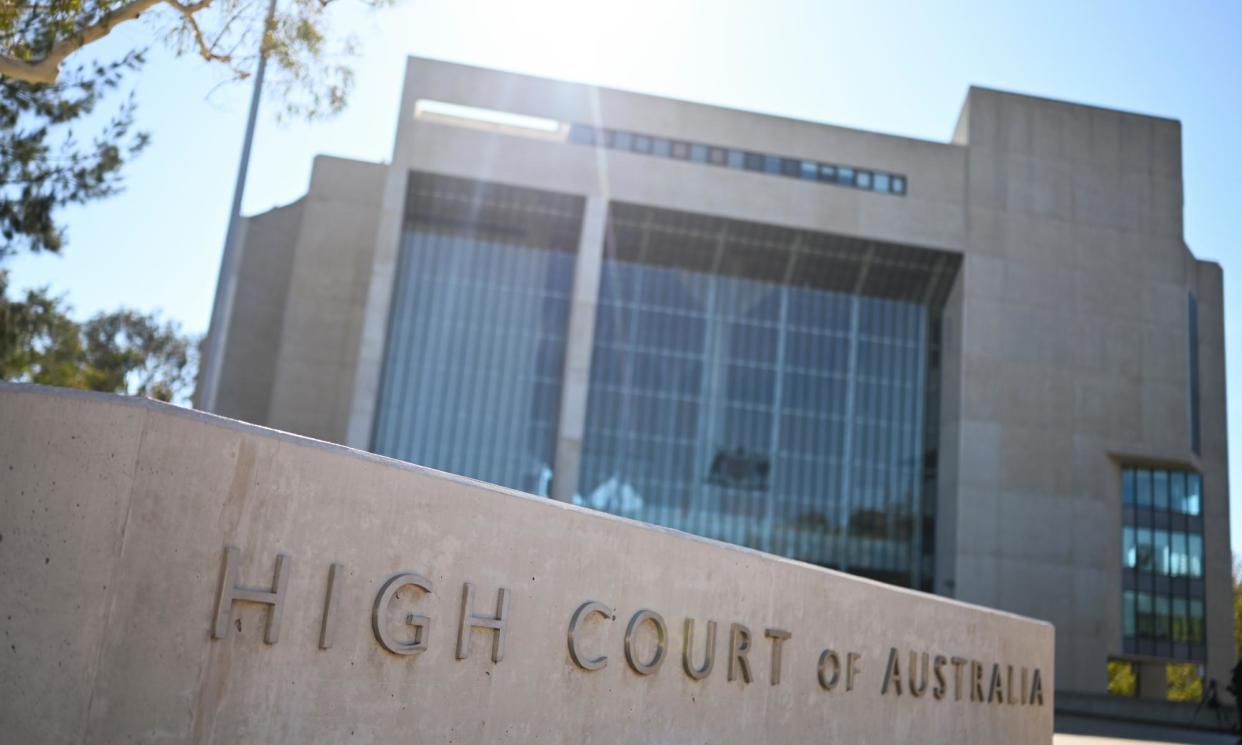Win for Albanese government as high court rules indefinite detention legal in non-cooperation cases

Labor has won a major victory in the high court over the indefinite detention of non-citizens who refuse to cooperate with removal, but the win has put further in doubt its push for new deportation powers.
On Friday, the high court ruled detention is lawful in the case of ASF17, an Iranian asylum seeker who refused to cooperate with efforts to deport him because he “fears for his life” because he is bisexual, Christian and a Faili Kurd.
The court unanimously held detention is lawful if deportation would be possible were the detainee to decide to cooperate in the undertaking of administrative processes necessary to facilitate their removal. The case was dismissed with costs.
The decision closes the door on asylum seeker advocates’ attempt to argue that detention is not lawful if a person refuses to cooperate because they have a genuine fear of persecution if deported, but leaves open further challenges by detainees with protection findings.
The win has sparked trouble for the Albanese government’s deportation bill, with the Greens arguing there is now no need for it and the shadow home affairs minister, James Paterson, saying the “urgency is gone” and there is “no excuse” to rush it through.
In November the high court ruled in the NZYQ decision that indefinite immigration detention is unlawful where there is “no real prospect of the removal” of a person from Australia “becoming practicable in the reasonably foreseeable future”.
The decision set off a political firestorm, resulting the release of 153 immigration detainees. New statistics, released on Friday, reveal 76 of these are subject to electronic monitoring and 68 have a curfew, visa conditions which are also subject to a high court challenge.
In the ASF17 case, the commonwealth sought to establish non-cooperation with removal is a justification to keep people in detention. In March Guardian Australia revealed a leaked internal estimate that more than 170 could be freed if the commonwealth had lost the case.
In a joint judgment, six justices including chief justice Stephen Gageler said that “ASF17 could be removed to Iran if he cooperated in the process of obtaining the requisite travel documents from Iranian authorities”.
“He has decided not to cooperate. He has the capacity to change his mind. He chooses not to do so.”
They held that “continuing detention for a non-punitive purpose that is occurring because of a voluntary decision of the detainee cannot be characterised as penal or punitive”.
The six judges said that if no protection finding has been made in favour of the detainee, then “a claim on the part of a detainee facing removal to fear harm in a country to which the detainee might be removed is insufficient to preclude removal to that country irrespective of whether that claim might be found on investigation to be genuine or well-founded”.
Justice James Edelman – who wrote a separate but concurring judgment – said the high court could not revisit the “factual basis” upon which the federal court had rejected that ASF17 had a well-founded fear of persecution.
He said only “executive decisions” by the minister, such as to give him a visa, could bring an end to his continuing detention “pending his consent to be returned to a country where he might be executed if he were to express, privately and consensually, what has been found to be his genuine sexual identity”.
In a statement the immigration minister, Andrew Giles, said the government had “fought strongly to defend our position in the high court” and welcomed its unanimous decision.
The Greens’ immigration spokesperson, David Shoebridge, told reporters in Canberra the decision “completely removes” the case for Labor’s deportation bill.
In a statement the opposition, which has proposed extensive amendments to the bill but not stated a final position, said it is “not in a form suitable to become” law and “needs to be improved before it can be passed”.
Giles rejected claims the bill was no longer necessary and the Coalition’s “incoherent” amendments.
Giles told reporters in Melbourne the bill “puts in place a requirement to cooperate” with removal, a “gap that remained open for too long”. “It’s a commonsense solution to a real problem.”
Giles confirmed the government will put the bill to a vote, arguing the onus was on Peter Dutton to “do the right thing to help us manage our migration system and keep the community safer”.

 Yahoo News
Yahoo News 
